Number comprehension Subtraction Worksheets for 7-Year-Olds
10 filtered results
-
From - To
Enhance your 7-year-old's math skills with our engaging Number Comprehension Subtraction Worksheets. Designed for young learners, these worksheets focus on building a strong foundation in subtraction through fun and interactive exercises. Each printable activity encourages critical thinking and improves understanding of number concepts, making math enjoyable and accessible. From visual aids to real-world problem-solving, our worksheets cater to various learning styles, ensuring kids grasp subtraction fundamentals with confidence. Support your child's academic journey by integrating these worksheets into their daily routine, promoting essential math skills that will benefit them in future learning! Start exploring the joy of subtraction today!
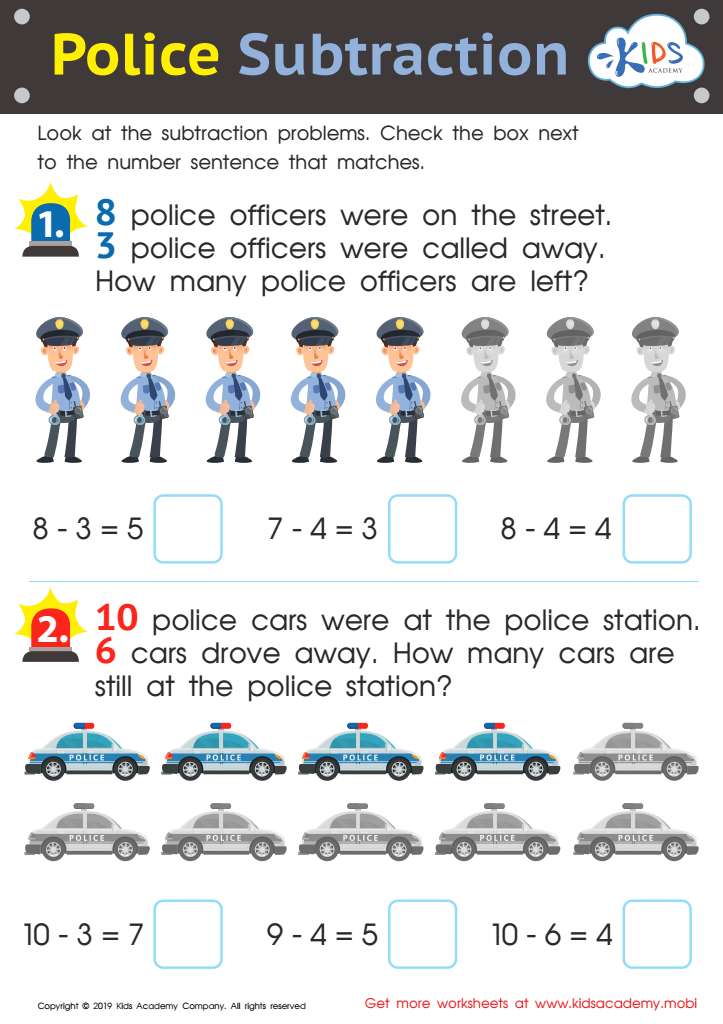

Police Subtraction Worksheet
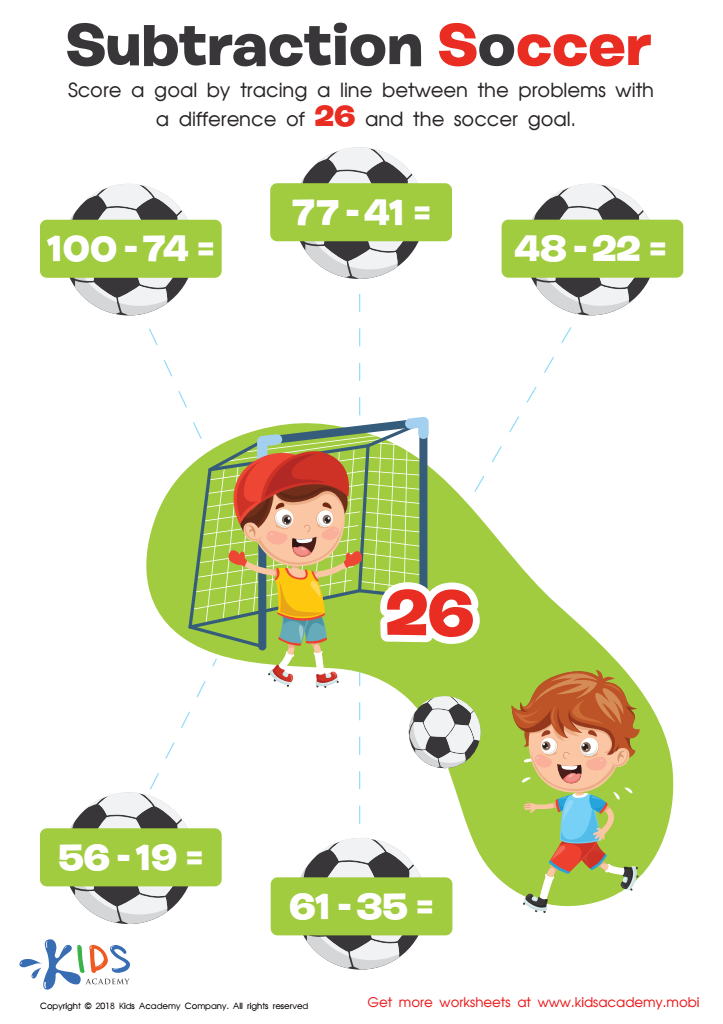

Subtraction Soccer Worksheet
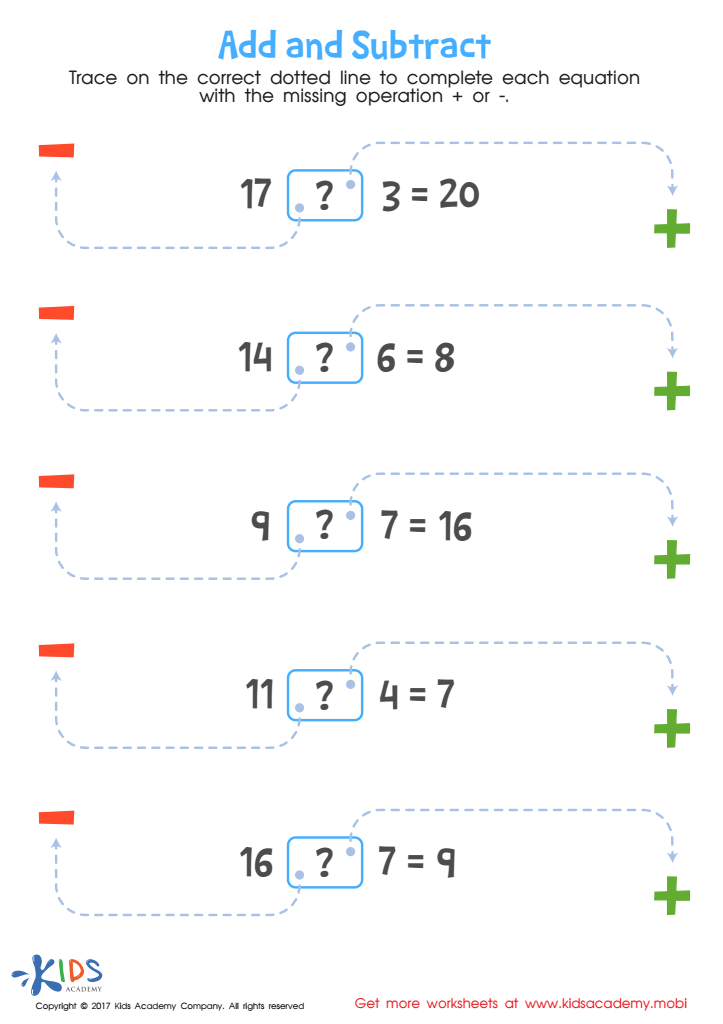

Add and Subtract Worksheet
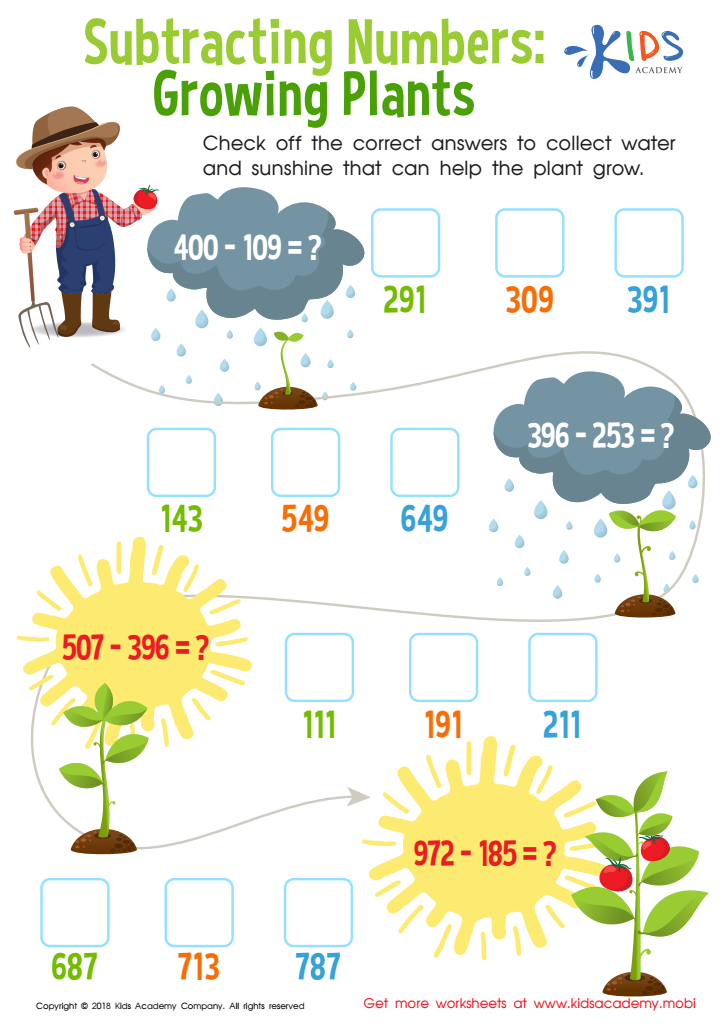

Subtracting Numbers: Growing Plants Worksheet
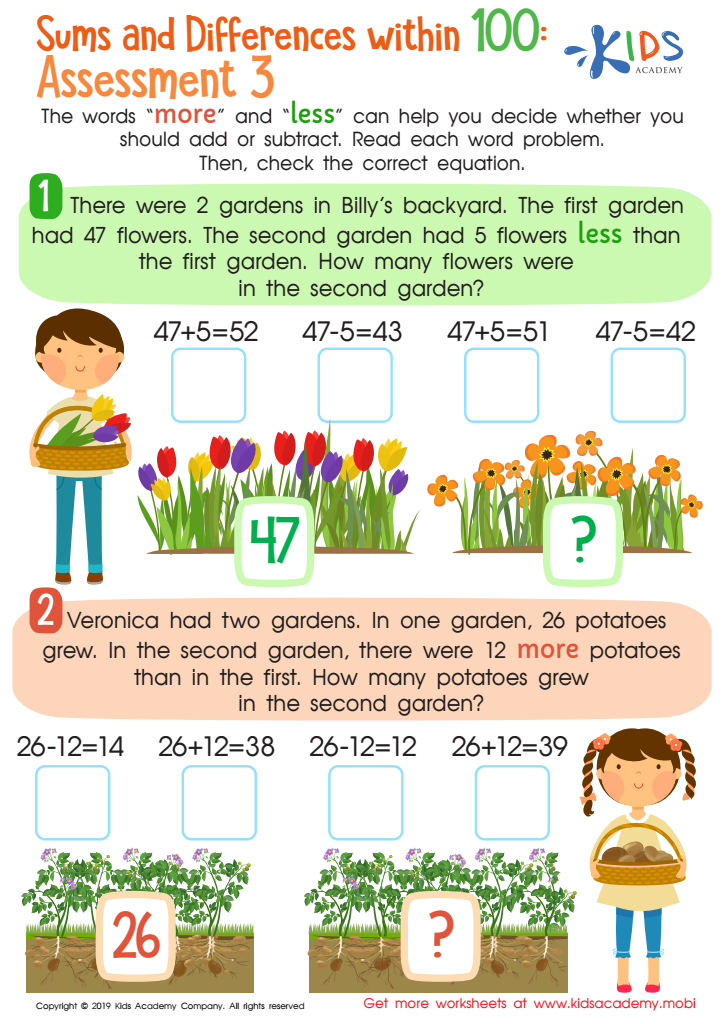

Sums and Differences Within 1 - Assessment 1 Worksheet
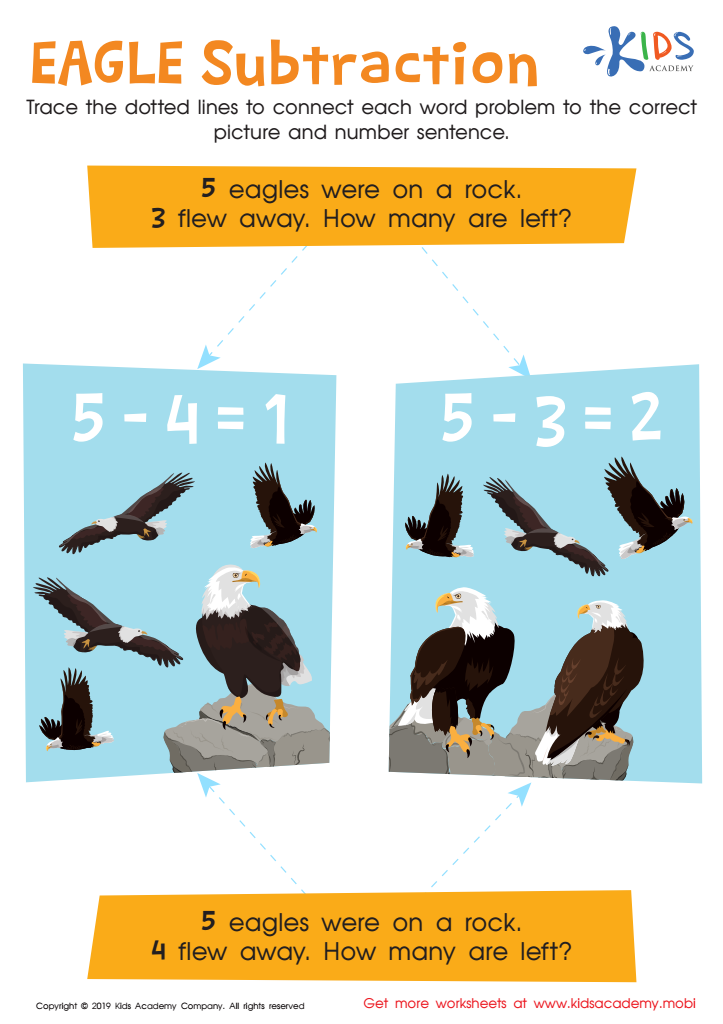

Eagle Subtraction Worksheet
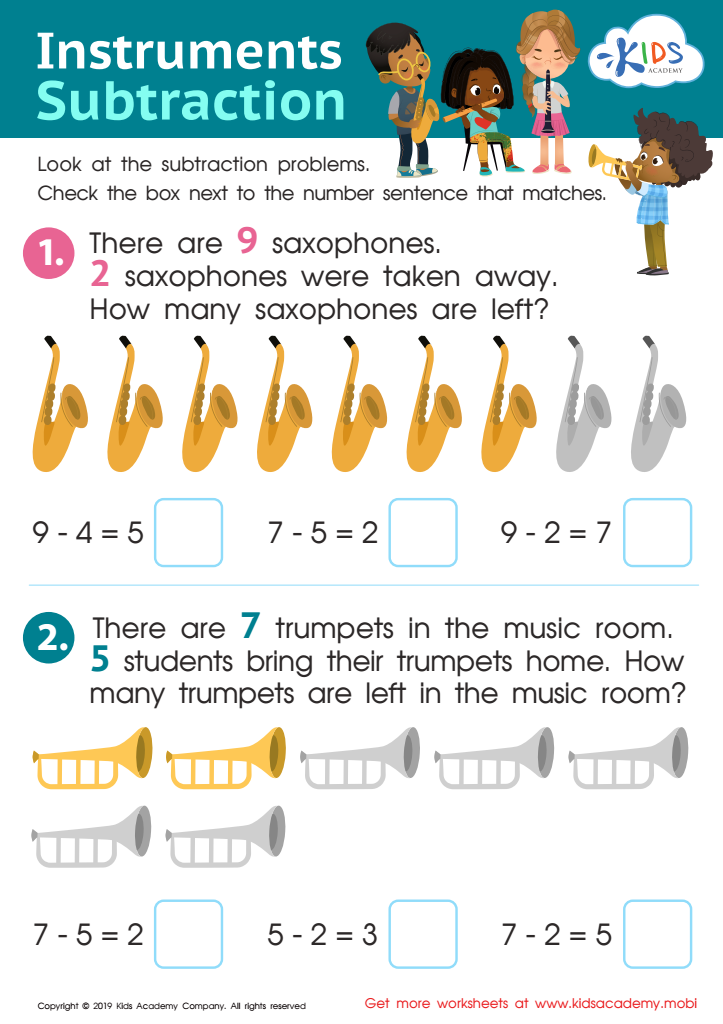

Instrument Subtraction Worksheet
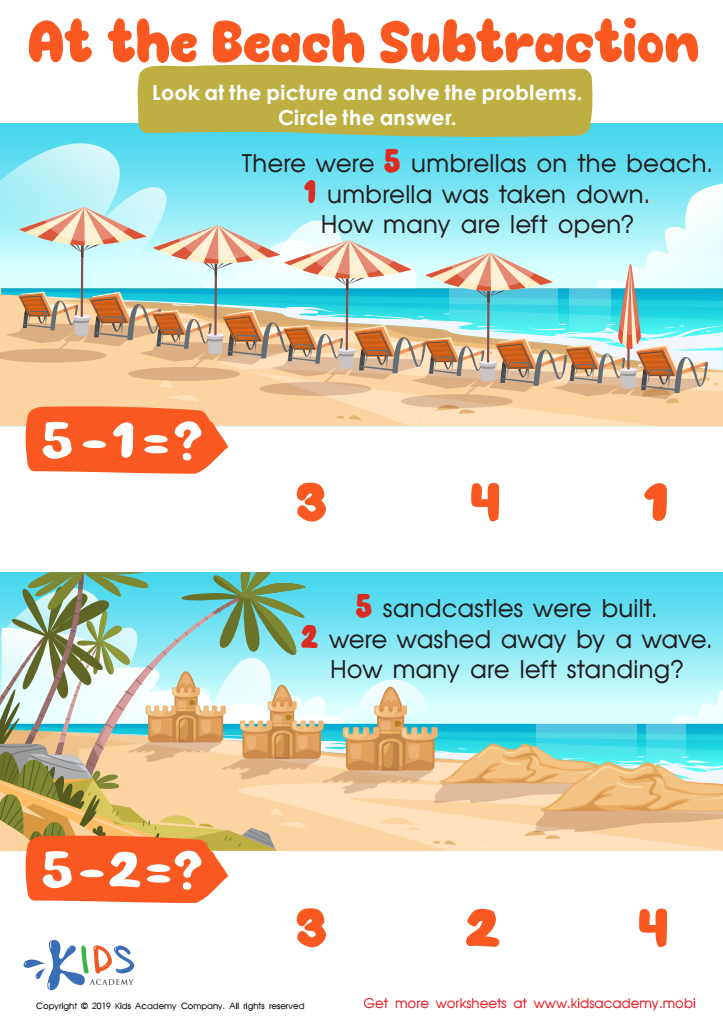

At the Beach Subtraction Worksheet
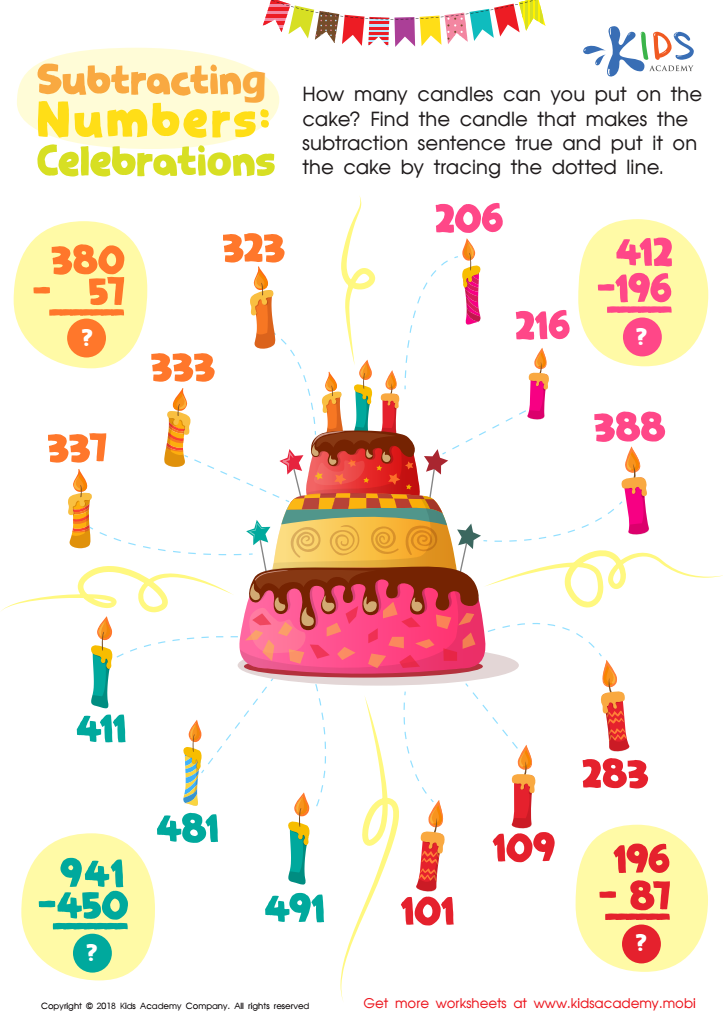

Subtracting Numbers: Celebrations Worksheet
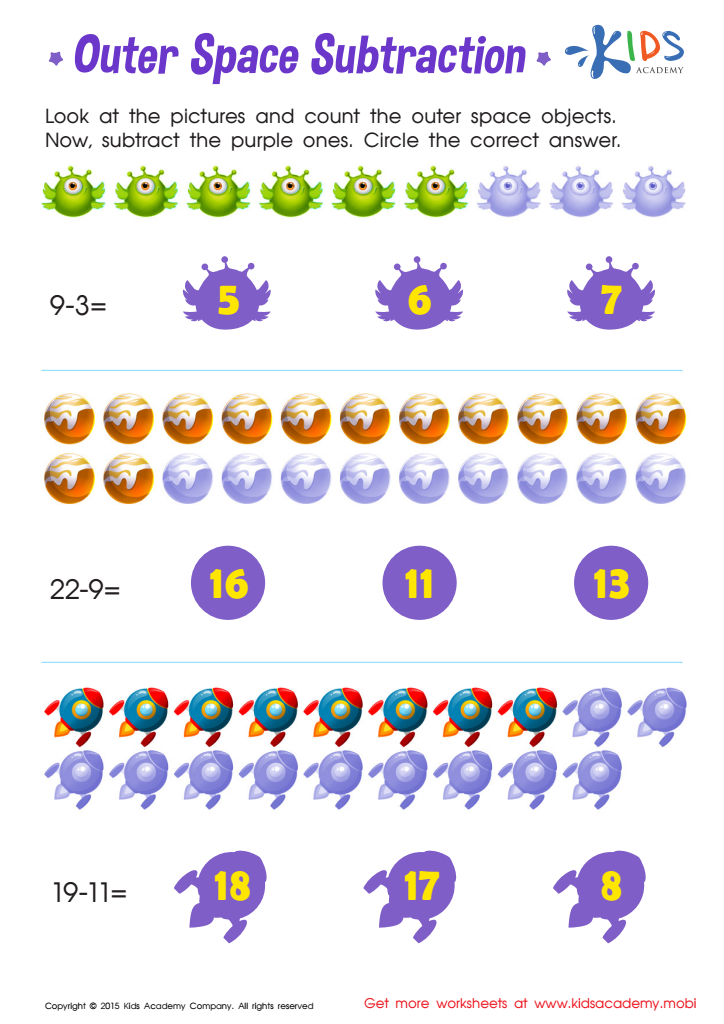

Outer Space Substraction Worksheet
Number comprehension, particularly subtraction, is a foundational math skill critical for 7-year-olds as they navigate their educational journey. At this age, children transition from simple arithmetic to applying their understanding in practical situations. Mastering subtraction enhances their problem-solving skills, which are essential not only in math but across all subjects.
Parents and teachers should care about facilitating this understanding because children who grasp subtraction can build confidence and motivation in math. Proficient subtraction skills are pivotal for tackling more advanced mathematical concepts later on, such as addition, multiplication, and division. A strong foundation at this age helps prevent math anxiety and sets children up for future academic success.
Moreover, subtraction is interconnected with everyday life – be it calculating change, measuring distances, or understanding scores in games. Encouraging a robust comprehension of number operations nurtures critical thinking and perseverance, valuable traits that extend beyond academics. By prioritizing subtraction comprehension, parents and teachers play a crucial role in enabling children to navigate life’s challenges with greater ease and confidence. Engaging them through fun, relatable methods can make learning enjoyable, fostering a lifelong love for mathematics and continuous learning.
 Assign to My Students
Assign to My Students
























